News roundup 16 to 30 June 2025
Asia-Pacific animal health news roundup

Latest activities from FAO’s regional and country teams.
In this news roundup
AFRICAN SWINE FEVER | |||||||||||||||||||||||||||||
| |||||||||||||||||||||||||||||
| Back to top | |||||||||||||||||||||||||||||
ANTIMICROBIAL RESISTANCE | |||||||||||||||||||||||||||||
| INDONESIA From 15 to 21 June, FAO, in collaboration with the Coordinating Ministry for Human Development and Cultural Affairs and with support from the European Union, visited SAJAKA villages in Bali Province—recognized for their antimicrobial stewardship practices. Conducted as part of a case study led by the Nossal Institute, the visit included interviews with farmers, local leaders and health workers to assess community-level One Health implementation. Findings from the SAJAKA pilot, implemented by One Health Collaborating Center Udayana, highlighted strong public engagement and provided practical insights to inform national antimicrobial resistance (AMR) One Health operational guidance. | ||||||||||||||||||||||||||||
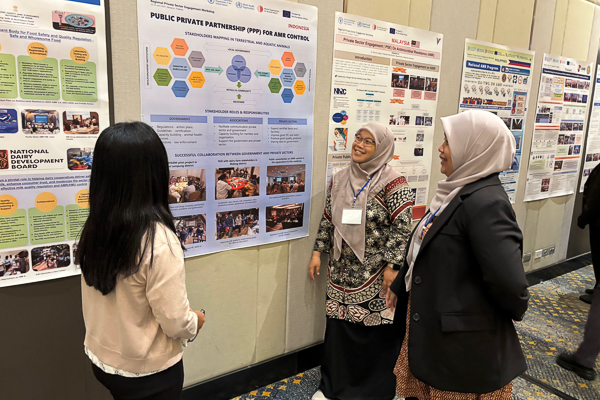 © FAO/Gunawan Utomo © FAO/Gunawan Utomo | INDONESIA Representatives from Indonesia participated in a regional workshop in Bangkok, from 23 to 24 June, on private sector engagement in AMR, supported by the European Union. The event, under the Tripartite AMR project, brought together stakeholders from Indonesia’s agriculture, fisheries and private sectors to exchange best practices. FAO showcased the country’s experience in public–private partnerships through initiatives such as RENOFARM and contributions to aquaculture AMR regulations and milk quality improvement efforts. The workshop promoted stronger multisectoral collaboration and regional knowledge sharing. | ||||||||||||||||||||||||||||
CAPACITY DEVELOPMENT | |||||||||||||||||||||||||||||
| |||||||||||||||||||||||||||||
| Back to top | |||||||||||||||||||||||||||||
EPIDEMIOLOGY | |||||||||||||||||||||||||||||
.jpg?sfvrsn=9d7bf9b0_1) © FAO/Siripatsorn Pongtarakulpanit | ASIA AND THE PACIFIC Over 150 participants joined a regional ENTRVST webinar focused on avian influenza. The session contributed to knowledge building by offering timely updates on the global spread of highly pathogenic avian influenza, addressing common misconceptions about vaccination and showcasing recent research on risk dynamics within poultry production systems in Asia. The conversation continues beyond the live event through VetEpi Connect, an interactive space within the ENTRVST virtual hub where participants can engage with expert speakers, explore follow-up questions and access webinar recordings. ENTRVST, supported by the Australian Government, is a peer-to-peer network to strengthen epidemiology capacity for Asia and the Pacific. Join the virtual hub here. | ||||||||||||||||||||||||||||
LABORATORY | |||||||||||||||||||||||||||||
| NEPAL On 26 June, FAO handed over essential laboratory equipment and diagnostic reagents to the Central Veterinary Laboratory in Tripureshwor, with funding from Pandemic Fund. The handover was led by FAO Representative and received by the Director-General of DLS, in the presence of senior officials. The equipment will support Nepal’s veterinary diagnostic capacity, particularly for the early detection and response to animal health threats. | ||||||||||||||||||||||||||||
ONE HEALTH | |||||||||||||||||||||||||||||
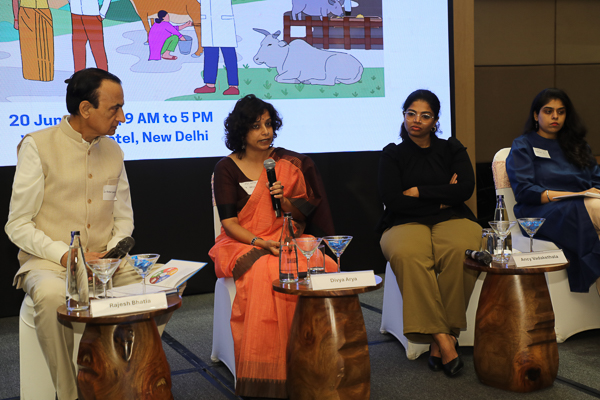 © FAO/Dipesh Solanki | INDIA FAO and the Department of Animal Husbandry and Dairying convened a national workshop in New Delhi, on 20 June, to develop a One Health communication strategy under the Pandemic Fund initiative. The event gathered over 60 participants from government, technical agencies, international organizations and media to strengthen multisectoral communication on zoonoses, AMR and pandemic preparedness. A key highlight was a panel discussion featuring journalists, emphasizing the importance of credible, consistent and context-specific messaging. The workshop featured sessions on behavior change communication, risk communication and community engagement. | ||||||||||||||||||||||||||||
| ASIA AND THE PACIFIC FAO, alongside other Quadripartite partners, contributed to the Association of Southeast Asian Nations (ASEAN) consultative meeting on the development of the ASEAN One Health Joint Plan of Action (AOHJPA) held on 23 June. The meeting aimed to gather inputs for the updated 2025-2030 plan, developed in line with the ASEAN Leaders’ Declaration on One Health Initiative. FAO emphasized the need to link with the 2023-2024 short-term plan, strengthen technical areas beyond tools and integrate environmental components in the management of zoonotic diseases and One Health threats. | ||||||||||||||||||||||||||||
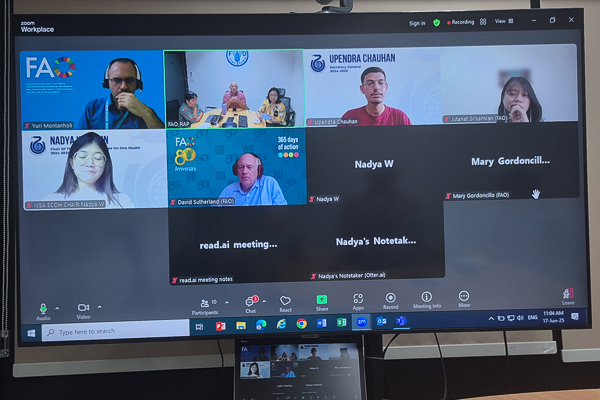 © FAO/Yin Myo Aye © FAO/Yin Myo Aye | ASIA AND THE PACIFIC FAO met with representatives from the Standing Committee on One Health (SCOH) in International Veterinary Students’ Association (IVSA) on 17 June to explore potential opportunities for collaboration in promoting the international application of veterinary skills, education and knowledge. IVSA is a student-run organization representing over 38 000 students from over 70 countries and is currently developing its strategic plan. The meeting also discussed FAO’s potential support to SCOH’s upcoming activities as well as linking SCOH with other networks in the region. | ||||||||||||||||||||||||||||
PARTNERSHIPS | |||||||||||||||||||||||||||||
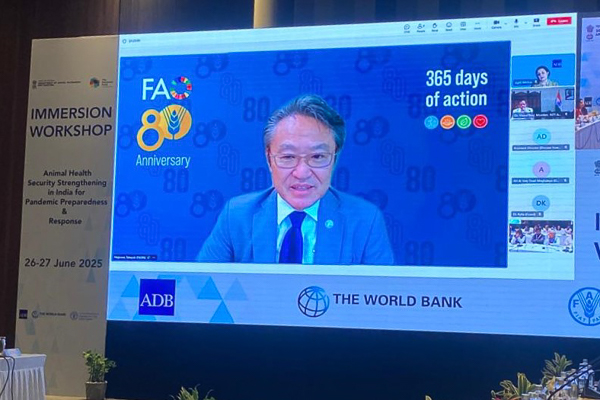 © FAO/Vikram Vashist | INDIA FAO joined the Department of Animal Husbandry and Dairying, the Asian Development Bank and the World Bank in an immersion workshop under the Pandemic Fund initiative in Mahabalipuram-Chennai, from 26 to 27 June. The workshop brought together over 100 stakeholders to align state-level priorities with national strategies for pandemic preparedness. FAO contributed to technical sessions on laboratory systems, surveillance, antimicrobial resistance (AMR) coordination and environmental and genomic surveillance. The event marked a significant step in strengthening integrated One Health systems across India. | ||||||||||||||||||||||||||||
| NEPAL FAO, in collaboration with the South Asian Association for Regional Cooperation (SAARC) Regional Support Unit of the Department of Livestock Services (DLS), supported an interaction workshop with current and former chief veterinary officers and World Organisation for Animal Health (WOAH) delegates on 27–28 June. Supported by the Pandemic Fund, the workshop provided a platform to discuss global and national animal health challenges and review the development of Nepal’s livestock sector. Preliminary findings from the WOAH performance of veterinary services gap analysis mission were also presented to senior officials from the Ministry of Agriculture and Livestock Development and DLS. | ||||||||||||||||||||||||||||
| ASIA AND THE PACIFIC AND THE PHILIPPINES FAO, with support from Defense Threat Reduction Agency of the United States Government and the Australian Government, hosted the 2025 annual regional coordination workshop from 17 to 19 June in Bohol, the Philippines. The hybrid event brought together 53 representatives from eight Southeast Asian and the Pacific countries and international partners to review progress and achievements as well as identify collaboration opportunities under two regional animal health projects. Participants aligned six technical areas, including epidemiology, laboratory systems, surveillance, risk reduction, coordination and One Health and GEDSI (gender equality, disability and social inclusion). | ||||||||||||||||||||||||||||
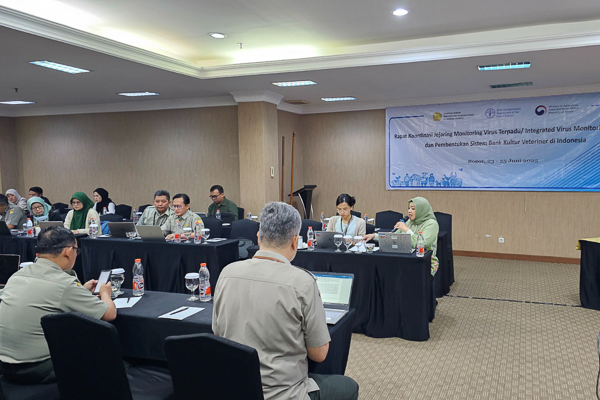 © FAO/Ali Arasyi © FAO/Ali Arasyi | INDONESIA From 23 to 25 June, FAO and the Ministry of Agriculture convened a national meeting in Bogor to advance integrated virus monitoring (IVM) and veterinary culture bank development, with support from Ministry of Agriculture, Food and Rural Affairs (MAFRA) of the Republic of Korea and the Pandemic Fund. Stakeholders from laboratories, private sectors, ministries, universities and development partners reviewed system improvements and shared recommendations to enhance disease surveillance and viral data analysis. The IVM platform has been enhanced to support categorized data entry to track avian influenza and African swine fever (ASF). It enables viral sequencing and epidemiological analysis, including antigenic distance calculations, which support vaccine development. Despite progress on the IVM system, further planning, infrastructure upgrades and regulatory alignment across laboratories are needed to address constraints in virus isolation and culture banking for transboundary diseases. | ||||||||||||||||||||||||||||
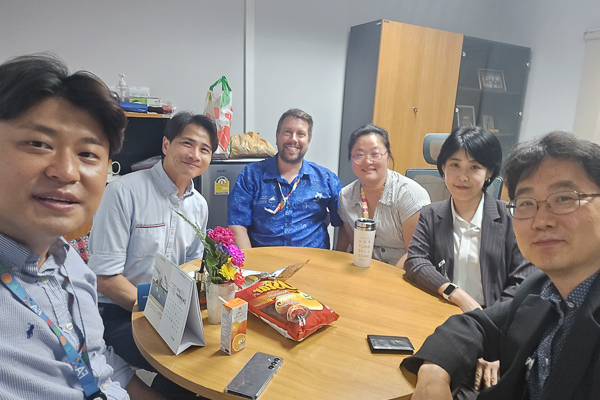 © FAO/Mugyeom Moon © FAO/Mugyeom Moon | ASIA AND THE PACIFIC FAO held a constructive discussion with two deputy directors from MAFRA and the Ministry of Oceans and Fisheries of the Republic of Korea to present key areas of work and recent progress under the FAO ECTAD programme. The discussion focused on regional progress in animal health system strengthening and reaffirmed the shared commitment to combat transboundary animal diseases and advance the One Health approach across Asia and the Pacific. The meeting also reflected the longstanding and valued partnership between FAO and the Republic of Korea. | ||||||||||||||||||||||||||||
- Learn more about our work on African swine fever here.
- Learn more about our work on antimicrobial resistance here.
- Learn more about our work on capacity development here.
- Learn more about our work on epidemiology here.
- Learn more about our work on laboratory here.
- Learn more about our work on One Health here.
- Learn more about our partnerships here.
Subscribe to our biweekly update here.

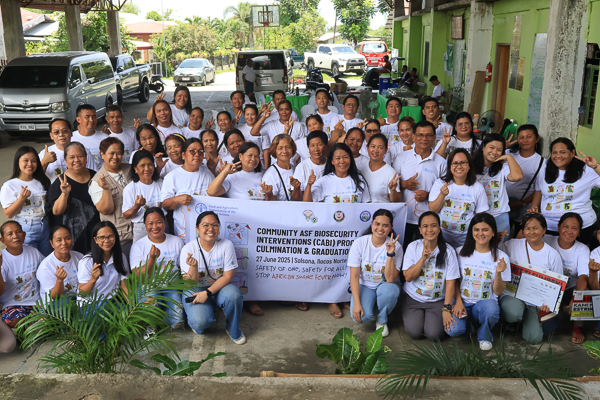 © FAO/Roxanne Bunayog
© FAO/Roxanne Bunayog---fao.jpg?sfvrsn=b81753d0_1) © FAO/Roxanne Bunayog
© FAO/Roxanne Bunayog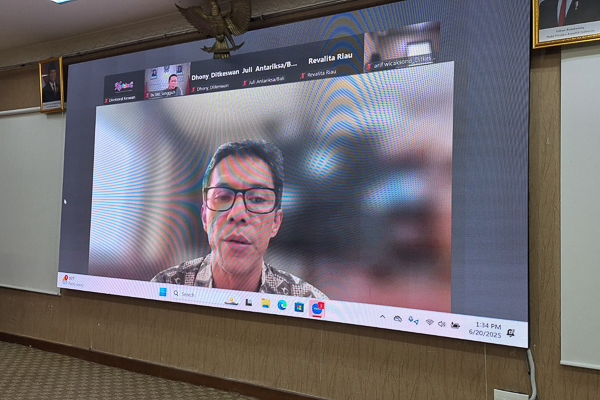 © FAO/Ratmoko Utomo
© FAO/Ratmoko Utomo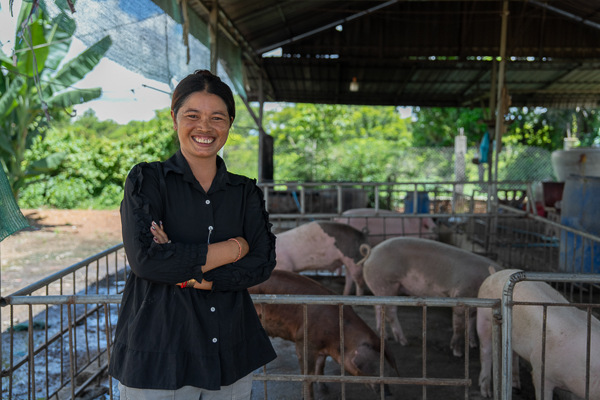 © FAO Cambodia
© FAO Cambodia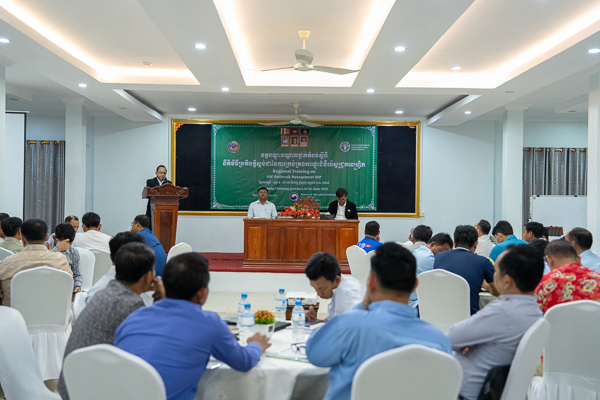 © FAO/Cambodia
© FAO/Cambodia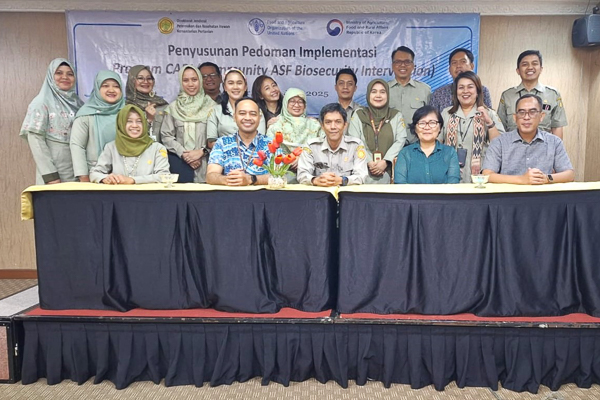 © FAO/Ratmoko Utomo
© FAO/Ratmoko Utomo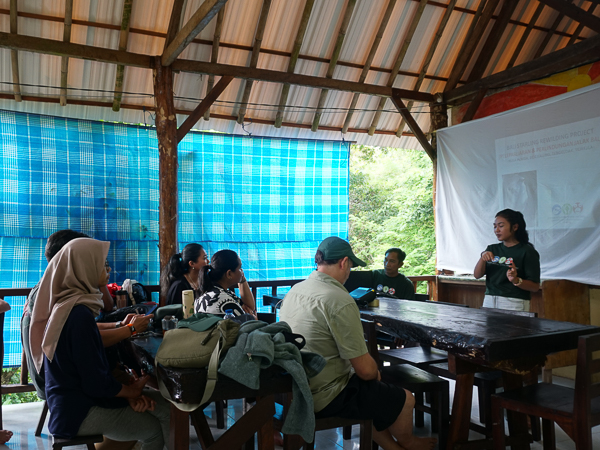 © Wildlife Conservation Society
© Wildlife Conservation Society.jpg?sfvrsn=505119d3_1) © FAO/Domingo Caro III
© FAO/Domingo Caro III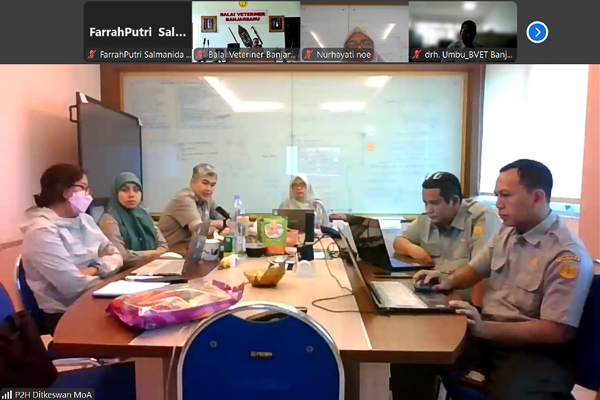 © FAO/Farrah Salmanida
© FAO/Farrah Salmanida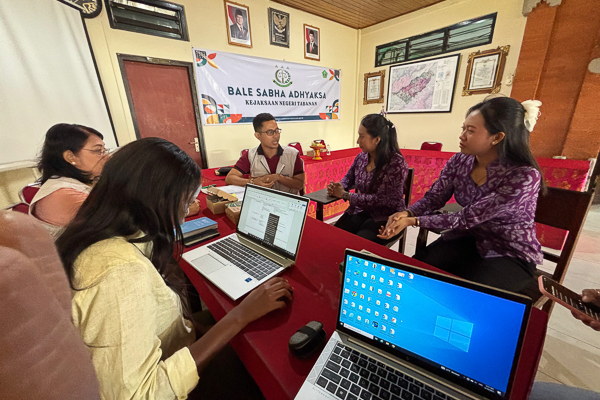 © CMHDCA
© CMHDCA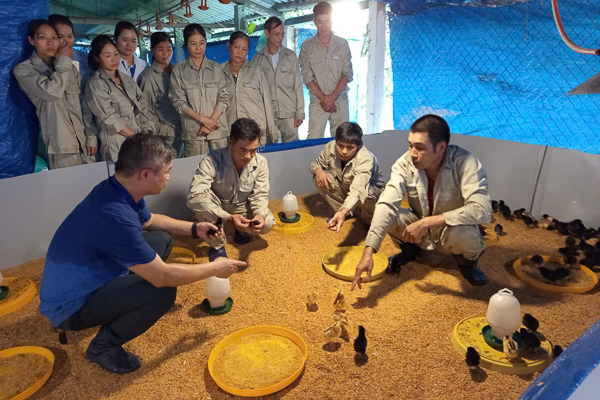 © FAO Viet Nam
© FAO Viet Nam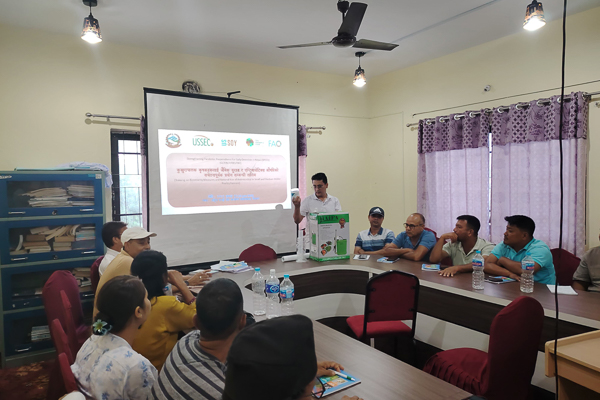 © FAO/Monalisha Khanal
© FAO/Monalisha Khanal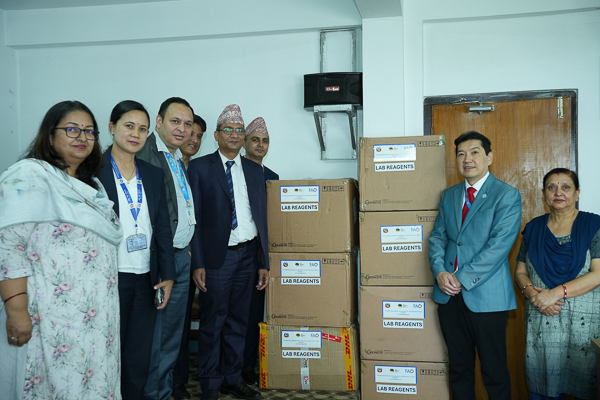 © FAO/Adarsha Dhungel
© FAO/Adarsha Dhungel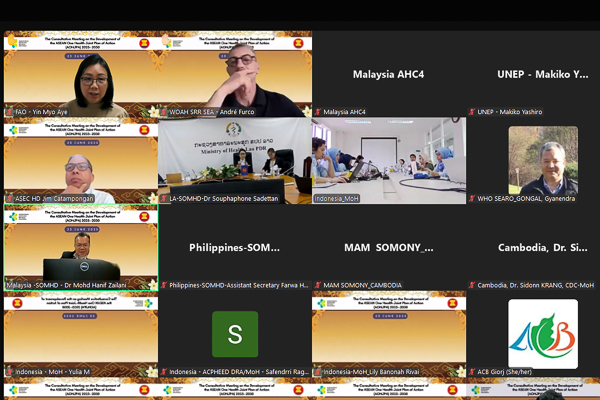 © FAO/Yin Myo Aye
© FAO/Yin Myo Aye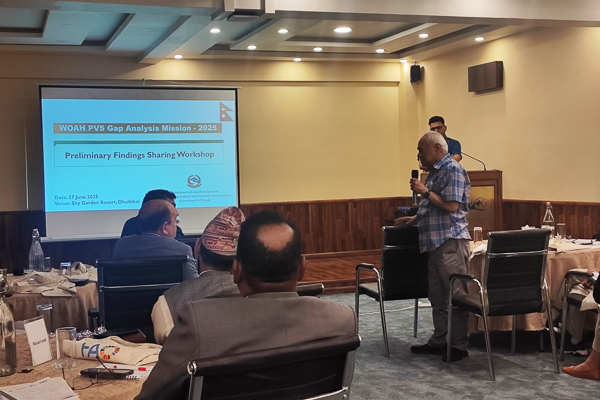 © FAO/Surendra Karki
© FAO/Surendra Karki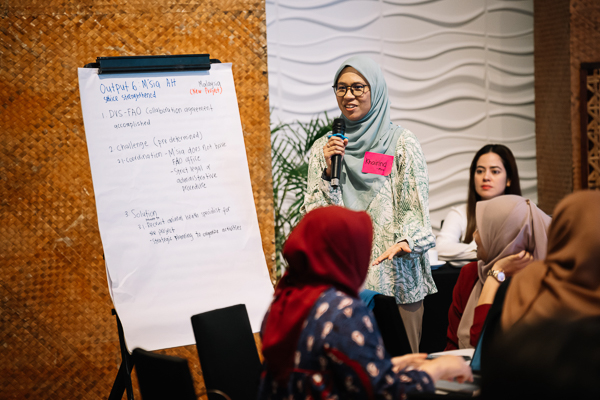 © FAO
© FAO